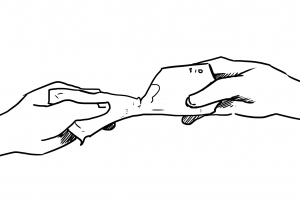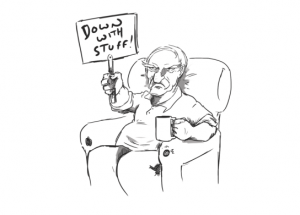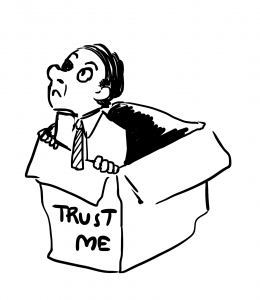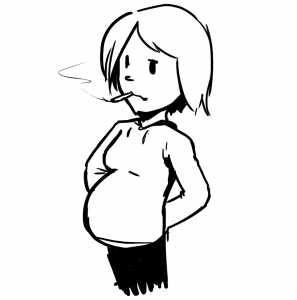Tip-splitting
A tip has started to feel like another tax – there is usually a clear expectation that I should add 10 to 15 per cent to my bill, and at many restaurants my tip is then pooled and divided among staff.
This essentially undermines what a tip is.
A tip is when a customer thanks a server for good service; if I feel my server has done a great job, has been friendly, and has exceeded expectations to ensure the quality and reputation of his or her business, I tip to thank that individual. Likewise, poor service results in a poor tip.
A tip should not be a charge (albeit still voluntary in most industries) exacted from a customer to make sure everyone gets a little extra. You’re paid to do the job, and you’re tipped if you do the job well.
You’re not entitled to a good tip just for showing up at the table, and when I give a good tip, I’m thanking my server, not the whole restaurant. If I like the restaurant, I’ll come again.
Armchair activism
Plato called it myth, Freud called it illusion, Marx called it ideology, and the comedian George Carlin called it bullshit.
Today we call it “the free market.”
Neo-liberal economics is a mask for unfettered capitalism. Capital gone wild. It is a light at the end of the tunnel of the great recession – but it is not the sun, it is a train headed right for us.
You can see how the free market puts value on people at the mall, where for-profit-non-profits sell pictures of poor children from Africa. You can buy your way—brand yourself—into a slumber of charity with Toms shoes and coloured silicone bracelets.
Our moral purchasing power is the systematic problem. It’s a kind of armchair activism that kills authentic movements.
We can make better choices. We should decide to be citizens, not consumers. To make good will, not buy trinkets.
Maybe we all need to do less buying and more nothing. Sit still. Leave our wallets in their place. And do nothing.
Journalists, used car salesmen, and Trudeau
Justin Trudeau recently commented that politicians are less trustworthy than “used car salesmen” and journalists, referring to a survey that ranked professions based on their trustworthiness. On this survey, politicians were, in fact, rated just below journalists and salespeople.
Being both a salesperson (I sell cameras at London Drugs) and (kind of) a journalist, it’s easy for someone like me to pick up on this comment and feel a little insulted. Trudeau referred to two parts of me as the world’s most unethical, least trustworthy kinds of people. When I’m selling or writing, I do my best to be as honest as possible. I’ve passed up more than a few sales because I won’t manipulate someone into buying something they won’t need and I won’t write something I don’t believe.
The comment sparked some criticism. In short, Trudeau apologized.
I think we should leave it at that and get back to what he was trying to say in the first place: the Liberal party needs to be trusted by Canadians. As a friend of mine once said “don’t fuck up. But if you do, apologize.”
Stop judging and sell the cigarettes
If an employee at an establishment selling cigarettes is uncomfortable with selling to a pregnant woman, should he or she be obligated to do so anyway?
From an early age, we are taught that smoking is bad. Programs like DARE (Drug Awareness Resistance Education), for example, preach abstinence when it comes to drug and tobacco use.
Yet as research on the perils of smoking continues, people continue to buy cigarettes. Pregnant women are no exception.
In the case of pregnancy, a woman is not only affecting herself but her unborn child. Is it possible for others to intervene in her life choices? Should pregnant women have the same restrictions on purchasing cigarettes as minors do?
It is tempting to try to intervene with such a decision, especially when the consequences affect an unborn child. However, it is not your body and therefore not your decision.
Though you may disagree with her choice, it is ultimately her decision to continue smoking despite being pregnant.






